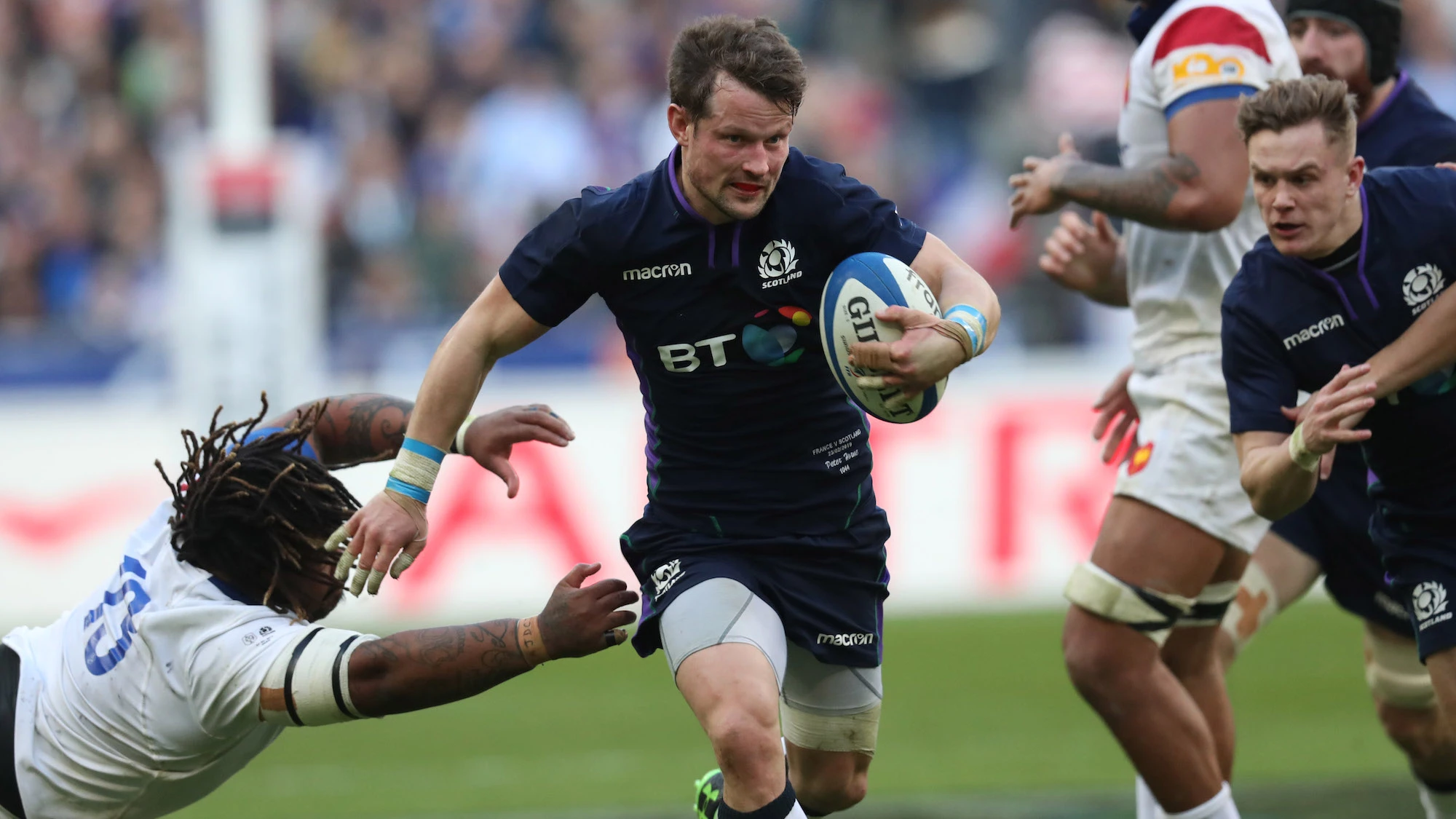Fail to prepare and you prepare to fail. That old adage perfectly sums up Joe Schmidt’s coaching philosophy – with meticulous preparation a hallmark of his time in charge of Ireland.
It’s a diligence that has paid dividends; three Championship titles, one Grand Slam and never finishing lower than third in the table speaks to that.
The New Zealander’s attention to detail and ability to ensure that no stone is left unturned consistently put Ireland in the best position to win.
But sometimes an apparent curse can turn out to be a blessing and a late spanner in the works ahead of the Round Four victory over France on Sunday may have thrown Schmidt’s preparation out of whack but provided a real spark to Ireland’s title tilt.
LARMOUR COMES OF AGE
After missing Round One through injury, Rob Kearney returned and looked superb in victories over Scotland and Italy.
The 32-year-old was named at full-back once more to face France but after tweaking his calf in the build-up to the game, it was deemed on Sunday morning that he wouldn’t be fit to take the field against Les Bleus.
That presented an opportunity to Jordan Larmour and after bench appearances against England and Scotland, the explosive 21-year-old was handed a first Guinness Six Nations start of his young career.
It took around 30 seconds for Larmour to make an impact as he received the ball inside his own 22, sprinted forward and lofted a kick in behind the French defence that forced an Irish line-out metres from the opposition line.
Shortly afterwards, skipper Rory Best crashed over the line for a try on what is likely his final Championship match at the Aviva Stadium and that set the tone for perhaps as dominant a 40 minutes as we’ve seen in the 2019 Guinness Six Nations.
There was plenty of talk through the first three rounds that Ireland – so impressive as they conquered all before them in 2018 – had lost their mojo somewhat but it was back with a bang against Les Bleus and Larmour’s early decision-making set the tone.
“His first involvement was special,” admitted Schmidt after the game. “Finding that space in the corner and forcing Damian Penaud to put that ball into touch after that kick receive.
“I thought that was super and I’m sure it gave him a spring in his step, that his first involvement was positive and on the back of that he built a number of other positive involvements.”
ALL-ROUND PERFORMANCE
Larmour’s attacking prowess is undeniable – and that was certainly on show in Dublin once more as he ended with 98 metres made and three tackle-breaks, both game-highs – but it was a mature all-round display in the 26-14 triumph.
And the man himself says that was no coincidence.
“That comes with learning and trying to get better as a player,” Larmour said. “Maybe last season, I would have taken that [opening possession] and tried to have crack but I saw there was space back there and the smart thing to do was put the ball down there and put pressure on them.
“It was early on in the game, good field position, so it comes with just learning. The more experience you get, the better a player you become.”
The late switch from Kearney to Larmour ultimately worked in Ireland’s favour, showing an adaptability that is admirable, and the fearless 21-year-old could well be the long-term answer at full-back.
In the short-term, Schmidt will have a selection headache as to his No.15 to face Wales in Cardiff with Kearney expected to recover in time for Super Saturday.
And while adjusting on the fly may have served Ireland well when it came to Larmour’s success at full-back, there was one moment that highlighted just how instrumental Schimdt’s meticulous preparation is.
A TRAINING GROUND MOVE
Larmour helped ensure Ireland flew out of the blocks in Dublin but it was the way they held France down for the entirety of the opening that was so impressive.
And in his post-game press conference, even Schmidt couldn’t hide his delight at just how dominant his side had been after France barely emerged from their own 22.
“From where we were the last time we sat in this room and it’s taken a while, but there was a bit of our rhythm back,” he said.
“I don’t think I’ve seen, in the last six years, a team control 40 minutes like we did in the first half.”
Incredibly, and to the eternal credit of France’s valiant defence, the Irish only had three tries on the board at the break – with the bonus point not being secured until the 56th minute, when that patented Schmidt research took full effect.
The coach had spotted a flaw in the French maul defence – a gap that emerged between the maul itself and the closest French defender having guarded from behind the lineout.
A first Irish drive drew in some French defenders before the ball was shifted to CJ Stander.
Keith Earls, who had slotted in at the front of the lineout, then popped up on the inside ball and burst through a gap that had been created, racing in for the try.
It was yet another example of Schmidt’s attention to detail making the difference and if that synergy between preparation and adaptability can remain, then they could just end the 2019 Guinness Six Nations on a high in Cardiff.



